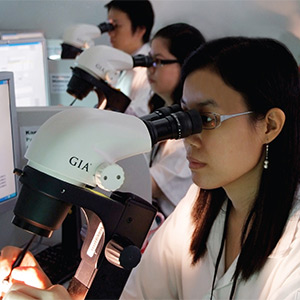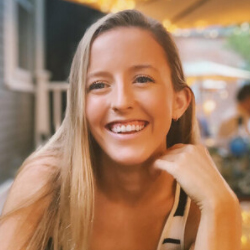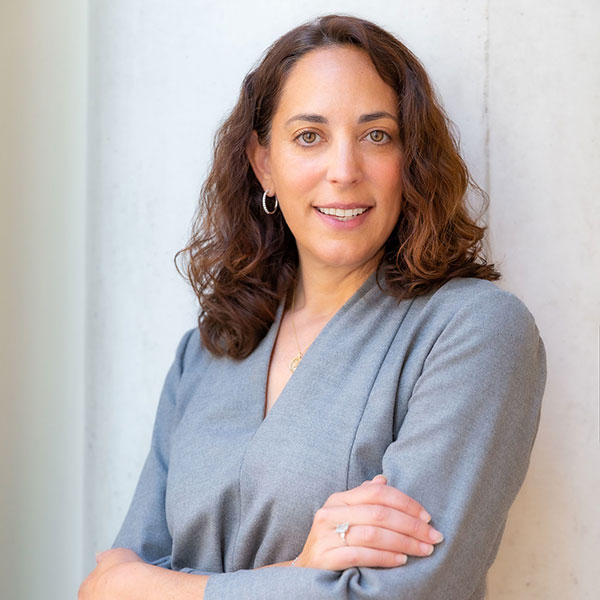
Beth Gerstein has a life that defines the term self-made woman, from her first job at age 12 as a neighborhood babysitter to attending some of the nation’s best universities (Duke, MIT, and Stanford) to her work as an electrical engineer for a satellite startup company.
These early roles taught her several things about herself, Gerstein says. First, she’s a goal-orientated individual. Next, she isn’t afraid of complex problems and loves to solve them. Finally, she wanted to make a broader impact with her life and her work.
These lessons—and an important college classmate with an idea for an ethical jewelry business—gave Gerstein the understanding that doing hard things that you really cared about was what gave life meaning. That led her and her friend Eric Grossberg to launch Brilliant Earth in 2005, even though neither of them had any jewelry experience at the time.
Today, Brilliant Earth’s success is well-known: The publicly traded, omnichannel fine jewelry company has made Gerstein wildly successful within her chosen industry. It is a career story that feels over the top, but that’s because Gerstein wanted to do something incredibly difficult and different from the start.
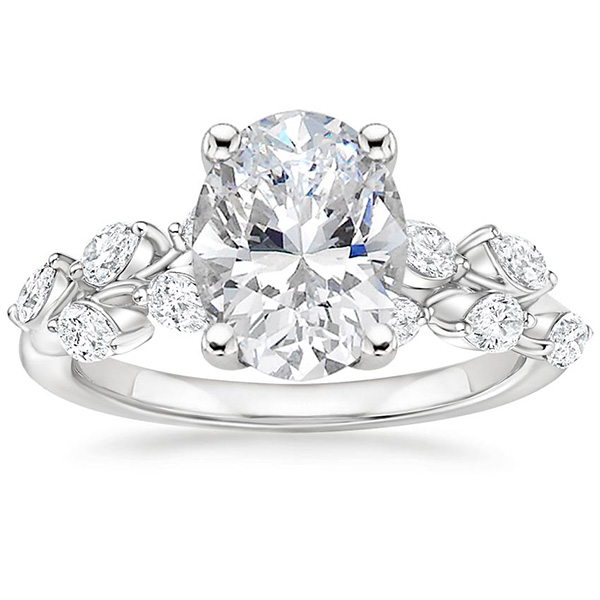
“I was a self-made woman even from the beginning,” Gerstein says. “I started really young, babysitting, tutoring, working at a day care. Taking care of 20 4-year-old kids was the hardest job I ever had. That teaches you leadership skills.”
Her work ethic comes from her parents—her mother worked as an executive at the Pentagon; her father worked for the National Security Agency (NSA). She’s the youngest of three girls; her two older sisters are twins. The family lived in Silver Spring, Md., and Gerstein says her close-knit family set her on a path of exploring new fields and big ideas.
She graduated from Duke University at age 19 with a dual degree in electrical and biomedical engineering. Not yet ready to enter the workforce, Gerstein says she got into MIT and studied electrical engineering, making her one of the few women there.
“It was an intimidating experience. Being in such a minority, it gave me so much motivation to prove myself and prove to others that I deserved to be there,” Gerstein says.
She moved to San Diego to work for the satellite startup after its CEO recruited her. The work was inspiring, Gerstein says. But space is a slow, patient slog toward an uncertain end. Meanwhile, she had met the man who is now her husband and started thinking about what was next for her life. She decided to attend business school at Stanford and see what unfolded.
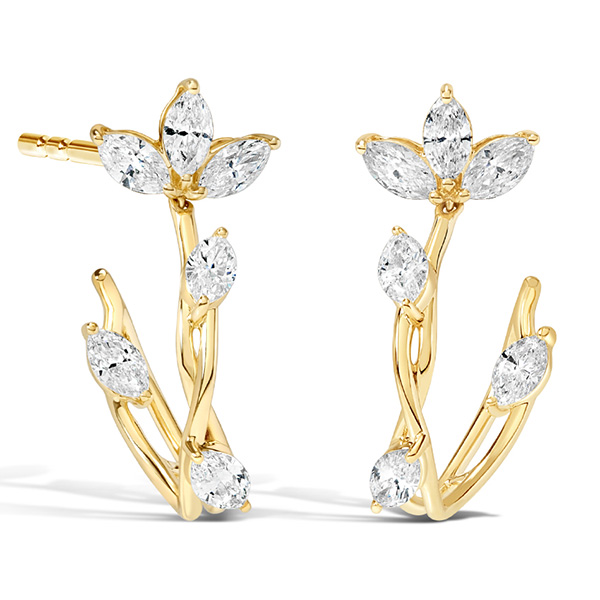
She met Grossberg on campus and they started talking jewelry in part because he had created a business plan about an ethical jewelry company within one of his classes. Gerstein had noticed the same issues when she had become engaged and found the diamond-buying process fraught.
“We wondered how we could modernize the approach, whether it is buying an engagement ring or buying a diamond,” Gerstein says. “We wanted to see if we could solve the problem together.”
The momentum for that shift was there for many reasons, Gerstein says. She was in California, where environmental issues are top of mind. She was shopping at retailers such as Whole Foods and attending talks given by thought leaders like Al Gore on environmental subjects. Television shows she watched (Frontline) were taking on topics such as blood diamonds.
So, from her apartment, the business duo launched a company that aimed to provide diamonds that focused on transparency. They started a website and also opened a San Francisco storefront when customers said they wanted to see the product in person.
“Neither of us had any connection to the industry, but that was an advantage for us,” Gerstein says. “We were able to come from the outside and really take an outsider’s perspective to approach [jewelry] in an entirely new way.”
That doesn’t mean the road was easy—they had to cold-call suppliers who frequently hung up. They had ups and downs with their website development. They weren’t big enough to get into some of the larger jewelry shows. But they kept moving forward, Gerstein says, spurred by getting some vendors on board and selling their rings to friends who had the same values as they did when it came to diamonds.
The rest? It’s jewelry history. Today, Brilliant Earth has 15 showrooms and has worked with customers in more than 50 countries worldwide. Brilliant Earth went public in September 2021, making Gerstein one of the few female leaders to go through the IPO process with her business.
“There’s a lot of failing when you’re an entrepreneur. You just have to keep knocking on doors and, eventually, one of them opens,” Gerstein says.
Top: Beth Gerstein has excellent educational credits and even helped to put a satellite into space. Ultimately, she found the jewelry industry the most intriguing, leading her and her cofounder to launch Brilliant Earth and take it public in 2021 (photos courtesy of Brilliant Earth).
Follow me on Instagram and Twitter
- Subscribe to the JCK News Daily
- Subscribe to the JCK Special Report
- Follow JCK on Instagram: @jckmagazine
- Follow JCK on X: @jckmagazine
- Follow JCK on Facebook: @jckmagazine

